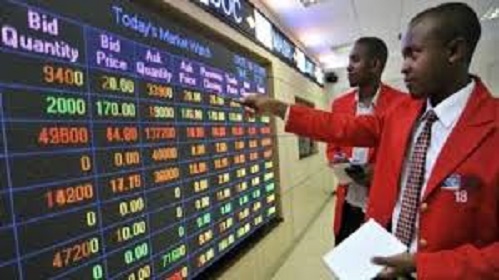
New data by the Central Bank of Nigeria (CBN) at the weekend revealed the need for the monetary authority to rework its cashless policy initiative, given the rate at which the volume of cash outside of the nation’s banking system continues to bloat, fueled by the political activities.
According to figures published on the CBN’s website, Nigeria’s currency-in-circulation increased year-on-year by N303.976bn or 15.69% at N2.241tr in February 2019, from N1.937tr in February 2018.
The latest figure is the highest since October 2018, when it stood at N1.956tr, with December 2018 being the exception; just as the lowest level in the past 12 months is the N1.9tr reported for the month of June 2018.
For many analysts and keen watchers of the nation’s economic space, the February 2019 figure many not be totally out of place, given that it was the period of the Presidential and National Assembly elections in the country that was characterized not just be violence, but recurring incidences of vote buying.
It was the period also when two bullion vans apparently loaded with cash, were pictured entering into the Lagos home of a popular and prominent political party leader, besides viral videos of top government officials luring voters with huge cash to swing their voters.
On a month-on-month basis, currency in circulation increased by N101.647bn or 4.75% from N2.139tr at the end of January 2019, when it stood at N2.139tr; while year-to-date, the figure was N2.329tr in December 2018 (the yuletide season), representing a drop by N88.393bn or 3.79%.
Recall that at the end of an 18-month pilot phase in Lagos, the cashless policy initiative of the Bankers’ Committee became effective on July 1, 2013, in five other states of Abia, Anambra, Kano, Ogun and Rivers, as well as the Federal Capital Territory (FCT), as part of efforts to redirect transactions from the predominant cash to electronic means across the country.
The policy requires bank customers to observe certain withdrawal and deposit limits daily over the counter. Upon exceeding such limits, a customer is required to pay certain charges for cash handling on the excess amounts.
For instance, individuals have a daily withdrawal and deposit limit of N500,000 while corporate bodies have N3 million. When these limits are exceeded, individuals will be charged 2% of the excess amount withdrawn and 3% of excess deposits, while corporate bodies will be charged 3% of excess deposit and 5% of the amount above the limit. Also, cheques valued more than N150,000 cannot be encashed across the counter.
For example, if an individual withdraws N450,000 over the counter, and N150,000 from the ATM on the same day, the total amount withdrawn by the customer is N600,000, and the service charge will apply on N100,000 – the amount above the free daily limit of N500,000.”














